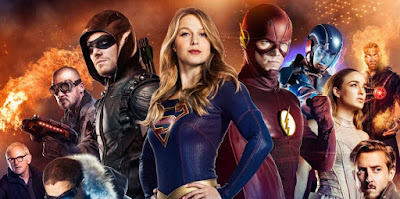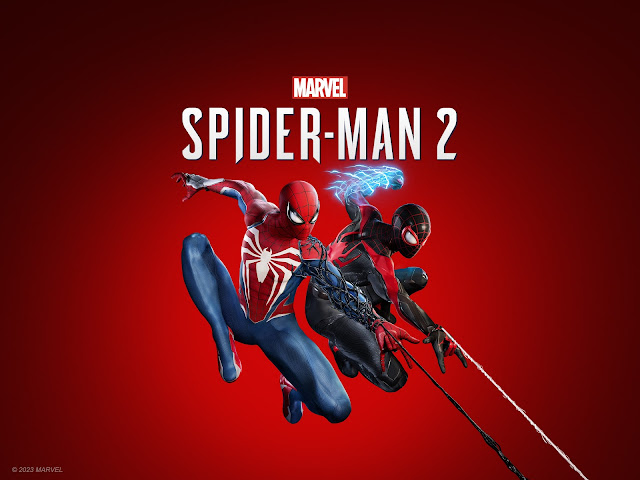Checking in on the current state of the CW's "Arrow-verse" Part 1
 |
| The "Arrow-verse" is The CW's greatest success to date |
 |
| Stephen Amell as Oliver Queen/Green Arrow |
The best example of that was the introduction of "The Flash" through a two-part storyline halfway through Arrow's second season. That introduction allowed for a spinoff that hit the ground running (no pun intended) from moment one. The Flash's first season became the blueprint by which many superhero shows would be judged by. And then with the introduction with more spinoffs like "Legends of Tomorrow" (a team show centered around Arrow and Flash's more compelling side characters) and "Supergirl" (a show that didn't necessarily start as part of the same "universe" but eventually was retroactively fitted into the other shows' continuity), The CW built a group of interconnected shows with a shared universe that did for TV something similar to the Marvel Cinematic Universe. And with DC Comics currently struggling to get their movie universe up and running, The CW's "Arrow-verse" proved to be a surprise hit for not just the network but the DC brand in general.
 |
| Grant Gustin as Barry Allen/The Flash |
With "Arrow" currently airing its fifth season, "The Flash" airing its third and both "Legends of Tomorrow" and "Supergirl" on their second one, each of these shows have experienced some different creative highs and lows these past couple years. With "Legends of Tomorrow" having just finished airing its second season in April 4th, and the other shows coming back next week to air their final few episodes, I'll be looking individually at how each of these seasons are stacking up before I start reviewing their individual episodes all the way to the season finale.
Without further ado, lets start with the show that just ended:
Legends of Tomorrow
 |
| The "Legends of Tomorrow" Season 2 cast |
Simply put, Season 2 was a lot of fun. Of all the 4 "Arrow-verse" shows this year, "Legends of Tomorrow" found the perfect balance in telling whacky, totally-out-there stories in its different time periods while still keeping its focus on its main story surrounding the "Legion of Doom" and the search for the Spear of Destiny. No other show would make consecutive episodes that would look and feel as different as they were and still feel cohesive. One episode could take place in 1620 Camelot, and then the next one would be a riff on Apollo 13. Season 2's greatest advantage was its unapologetic tone, and seeing the show embrace the fun gave it the feeling of the Silver Age comic books of yesteryear.
At the same time, the show was not afraid to delve into some dark territory when it needed to. Some of the best examples for that were during the episodes where they went to the American Civil War and even World War I. While those episodes still included some fun moments (the Civil War episode was about thwarting a zombie virus infecting Confederate soldiers while the World War I episode included an appearance by a young JRR Tolkien that proved to be a Lord of the Rings analogy), they were also not afraid to show the nastier sides of those time periods. From the slavery problem of the Civil War to the brutality of the carnage of World War I, those episodes showed "Legends of Tomorrow" versatility at handling widely different tones.
 |
| The Legends during their trip to 1620 Camelot |
The show also took great strides with its main cast of characters in Season 2, which was one of the reasons Season 1 worked even with its story issues. Newcomers like Nate Heywood as Citizen Steel and Amaya Jiwe as the 1940's version of Vixen gave the team much needed variety. Old characters like Ray Palmer (Atom), Mick Rory (Heat Wave) and Sara Lance (White Canary) experienced great growth this year. Even Martin Stein (one half of Firestorm) got to experience the joys of parenthood, even if his partner Jefferson Jackson didn't get his own story this year. Even the villains were much improved this year. Using villains from "Arrow" and "Flash" and pairing them together to form the "Legion of Doom" proved to be a better threat than Vandal Savage. It also help the show take great advantage of the shared universe these shows inhabit, as the development these villains got in the other shows provided greater depth right out of the gate.
 |
| The Legends trip to World War I |
The show started strong this year and ended just as strong. Where other shows in the Arrow-verse sometimes tend to stumble at the finish line (like it was the case for Arrow in its third and fourth seasons), Season 2 of Legends was able to remain strong until the end. While there were some missed opportunities in regards to the character of "Reverse Flash" and the chance for the show to serve as a conduit for that character to remain in the "Arrow-verse", the finale was a strong payoff to this season. Strong even with a cliffhanger that creates some concern for the status quo not just for this show but what it means for the other shows going forward.
While the other three shows still have a few episodes to go, "Legends of Tomorrow" already makes a strong case of being the best of the 4 shows this year, with only one other show potentially contesting that title depending on how its finale pans out.
Check in later where I'll continue to look into the current state of the "Arrow-verse".
While the other three shows still have a few episodes to go, "Legends of Tomorrow" already makes a strong case of being the best of the 4 shows this year, with only one other show potentially contesting that title depending on how its finale pans out.
Check in later where I'll continue to look into the current state of the "Arrow-verse".



Comments
Post a Comment